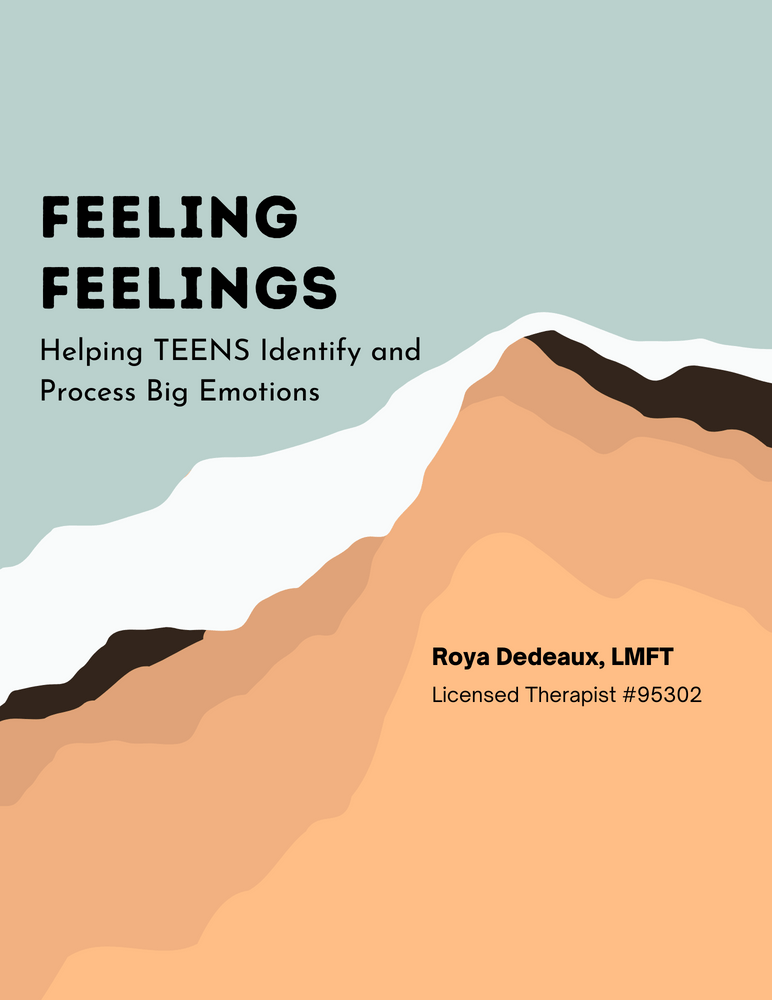3 ways to change your parenting in the teen years
3 ways to change your parenting in the teen years

What you don’t find in parenting teen books
Teenagers are some of my favorite people. When I say this to folks at attachment parenting or homeschooling conferences I usually laugh and say, “it’s because I’m just barely not a teenager myself.” I honestly do remember, quite acutely, the pangs and perils of being a teenage girl. The need to spend all my time with my friends, have about eight thousand creative outlets, color my hair and draw on my shoes… I mean, that’s all still true of me, even though my teenage years are quite a ways behind me.
It’s more than wanting to color the world in glitter and feel like every song lyric is speaking directly to me - being a teenager can be hard.
If you are struggling to connect with your teens, if you are looking for answers in teenage parenting books and parenting teen podcasts, if you are feeling like a pinball ricocheting between parenting with love and logic - if you feel like your adorable little toddler suddenly turned into a new being overnight and you don’t know if you’re supposed to feed it after midnight -
Here are 3 ways to change your parenting in the teenage years for a more connected, collaborative relationship.
1. Give them more time
Right at the age where schools are asking teenagers to commit to even more extra curriculars, zero period and after school commitments is the time when I say - let them have more time doing what they choose.

Teenagers absolutely need more time with their friends.
They need more time to sleep. They need more time to cocoon, to listen to music, to watch the same TV shows over and over and over again. Remember when they were learning how to speak, and it seemed like they needed whole days to sleep? The amount of physical and cognitive development happening required a lot of energy and recovery. That is happening now!
On top of this developmental need - they also need to know you trust their choices. So when they make a choice (like to play more video games or cut 2am bangs) support them in it. You trusting them helps them trust them. And this is key for teenagers to develop better self esteem and a sense of self.
2. Let them explore being separate from you

Remember how proud you were when your kid learned how to walk, and could suddenly wobble their way across the room? Try to remember that that’s the same thing that is happening right now. Teens are supposed to differentiate themselves from their family of origin. If they grew up vegetarian, they suddenly want to eat bacon. If they homeschooled, they want to try highschool.
What feels like a sudden shift in values can scare the living daylights out of parents. But please remember that they are supposed to wobble away from you. They are supposed to find community that is outside of your family. They are supposed to try on new ideas. Your job as the parent is to not take it personally, to keep the door of communication open, and stay curious about what they are experiencing.
3. Don’t add to the pressure

Even if you are the most laid back stress free parent in the world, the rest of society is sending your teenager messages about what they’re supposed to be able to do. They are looking at the future like it’s a sudden drop off a cliff - and it’s full of scary things and anxiety.
As parents of teenagers you and I know that a lot will change for them in just a few years. The difference between 13 and 18 is more than 5 years. But they don’t know that yet. They are anxious about adulting. They think they’re supposed to know how to live independently now. How do you help your anxious teenager?
Have you ever asked your teenager something innocuous like, “what do you want for dinner?” And they respond with over the top irritation? For you, the question is just about what food to make. For them, it’s one more question they don’t know the answer to. And it’s connected to all the other questions they don’t know the answer to. And that’s connected to all the things your teenager is worried about.
So how do you help your scared teen?
Provide simple, concrete, matter of fact offers. “Today I am making grilled cheese sandwiches. Do you want it in here or at the table?” That gives them choice, but not that open-ended feeling that connects to the bigger fears. This isn’t just about food - it can generalize to so many decisions. If they respond with, “I don’t want grilled cheese?” That’s okay. That’s good. “I also have spaghetti. Your choice!”
Help for parents
It’s so hard not to take certain teenage attitude, looks, and tone personally. If you need help connecting with your teenager, try this 30 minute parenting webinar on helping Teens Feel their Feelings.
Roya Dedeaux is a Licensed Marriage and Family Therapist with a focus on using creative tools like art, writing, and recreation as a way to help teens and their families who don't quite fit the mold.
Roya’s first book, Connect with Courage: practical ways to release fear and find joy in the places your kids take you is the result of her background in Recreation and Leisure Studies and Marriage and Family Therapy and is the base of her Connect with Courage Parenting Course.
She loves running her private practice, creating art prompts for her
two online art groups, and running games and challenges in the
free Recreate Parenting Facebook community! When she's not doing that, she loves to make messes with her three wild & wonderful kids where they live and play hard in Southern California.





